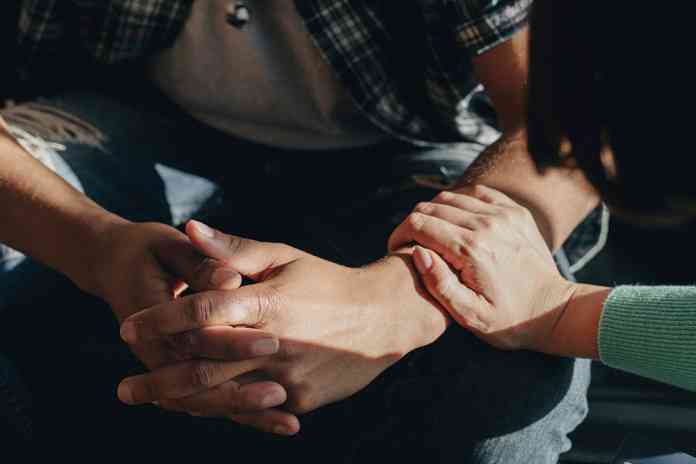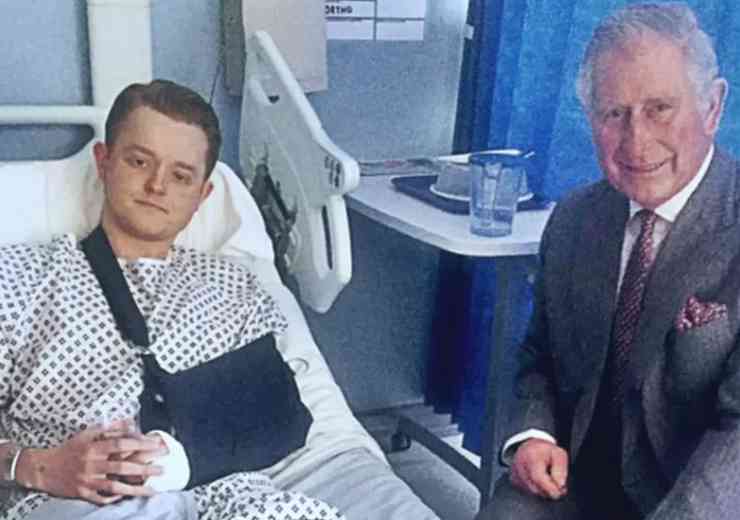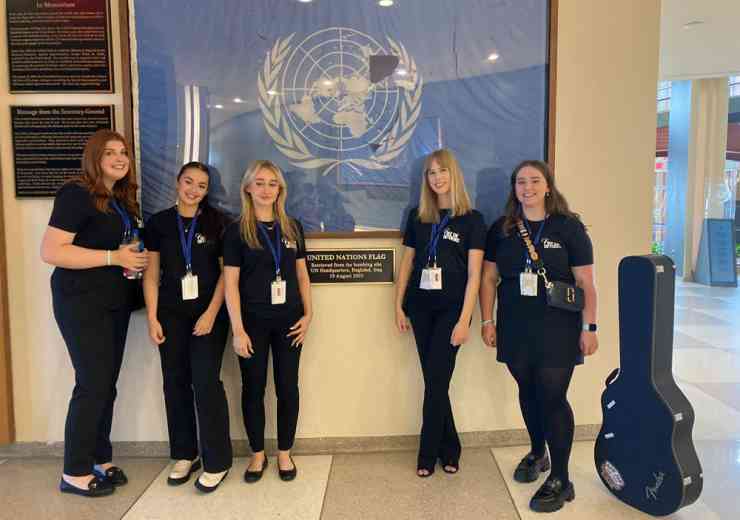
Now is the time to create change for young people affected by terror
Dr Cath Hill, Manchester Arena attack survivor, lecturer in social work at Lancaster University and member of the National Emergencies Trust’s Survivors Advisory Forum explains some of the findings of the Bee The Difference report
It’s been six years since the Manchester Arena terror attack, and nearly a third of young people affected by that night have not received any professional support. As a survivor of the attack, along with my son who was ten years old at the time, I know first-hand how crucial it is for young people to receive specialist support. It can help them to recover and rebuild their lives after experiencing trauma.
One of the reasons I co-founded the Manchester Survivors Choir in 2018 was that, as both a social worker and a mum, I could see a need for greater support for those affected, including the many hundreds of young people. Being able to come together with other survivors and share our passion for music, as well as our experiences of the attack, was a lifeline. But it also shone a light on the disparities in support being offered, and the lack of understanding about their needs.
It’s why early last year I approached the National Emergencies Trust about creating new insights into the experiences of young Manchester survivors – and how Bee The Difference was born. The research project is a collaboration between nine incredible young survivors, the team at the National Emergencies Trust and myself and colleagues at Lancaster University. It aims to enhance understanding of the impact of terror on young people; what support is most helpful – and ultimately improve outcomes for future young survivors.
The nine young survivors led the design of a Bee The Difference survey. This launched in August last year and was open to young Manchester survivors who were under 18 at the time of the attack. Having the young people lead it was vital because it meant that the right questions were asked in the most compassionate way possible, and crucially without asking young people to retell their personal stories. The survey also went through a rigorous process with Lancaster University’s Ethics Panel.
More than 200 young survivors filled in the survey in the months that followed, providing both quantitative data and detailed qualitative feedback. Thanks to their contributions we now have a clear picture of how to improve outcomes for young people affected by terror in the future. So, what can we learn from their experiences? The report highlights six actions individuals and institutions can take to improve the support and access available.
Bee visible
Make sure that support is visible and readily available for young survivors and their loved ones so that the onus is not on them to find it. The research shows that 29 per cent of young Manchester survivors have never received professional support and some of the key reasons for this are that it was never offered to them; they didn’t feel comfortable to ask for it; and they didn’t know where to find it.
In the aftermath of future attacks, local authorities, schools, GPs, charities and others could all play a valuable role by signposting the support available to those affected. Interestingly, the research highlights that offering mental health support early on can help to validate young people’s feelings, so can have a positive benefit straight away, even for those who may not feel ready to take up the offer.
Bee compassionate
Listen to, validate and take proactive steps to accommodate young survivors’ new needs. The findings show that the simple act of validating young people’s feelings can make a huge difference to their wellbeing; and is something all adults and organisations in positions of care could be mindful of should the worst happen again. The qualitative feedback in the report suggests young people had their feelings dismissed because of their age.
“... when I asked for help they brushed me off and put it down to just teenage hormones. To then just put me on antidepressants and that was only at 18 - and they didn’t even think of referring me to a therapist.”
Bee experienced
Make sure that specialised trauma support is accessible and readily available, wherever survivors are based. While many young people received incredible pastoral care from their schools, many noted that they would have benefitted from more specialised help – and in some cases, this was a long time coming. In fact, while 93 per cent of young survivors felt they needed support in the aftermath of the attack, 70 per cent received no professional help within the first month and 31 per cent received no professional help within the first year.
“I sought help from my school nurse/therapist a few months after the attack when I was experiencing nightmares...She read from a printed stapled booklet and told me to have a bubble bath before going to bed to prevent the nightmares. This wasn’t helpful.”
One form of “experienced” support was peer-to-peer support from other survivors. This proved vital because it gave young people a chance to connect with others who really understood them. Alongside this, specialist trauma-informed experts were highly valued. Many were referred to specialists by their GPs or through the Manchester Resilience Hub.
Bee flexible
It’s clear that young survivors benefit most when they can choose the kind of therapy that works for them. But this was often not the case, and some felt that adults made the wrong choices for them. In the future, trusting children and young people to have a say in the support they receive could help to significantly improve outcomes.
“...it was clear the counselling was directed to younger kids as a method of drawing pictures with crayons and being unable to speak freely made the experience feel incredibly condescending and difficult. Therefore it made my mental health worse and I was unwilling to continue.”
Bee patient
Remember that recovery isn’t linear and can take time. Mental health needs evolve over time and sometimes major life events and anniversaries can be retraumatising. Nearly a quarter (23 per cent) of young survivors continue to receive psychological support today. A further one in five have stopped receiving professional support (19 per cent) but feel they would still benefit from it. Anniversaries, in particular, can be triggering for young survivors, making it vital to factor these in when planning for their long-term care.
“I would say that I am affected more now than I was 5 years ago. I receive support from family and friends [...] I struggle to comprehend what even happened that night.”
Bee proactive
Act on young survivors’ experiences to turn their challenges into future change. There’s more that can be done now to improve support for young people following a major traumatic event and the report suggests ways that individuals, educators, healthcare professionals, government and other public bodies can make a difference. Now that the Bee The Difference report has launched, the hard work needs to really begin. It’s time to create change for young survivors, together.














